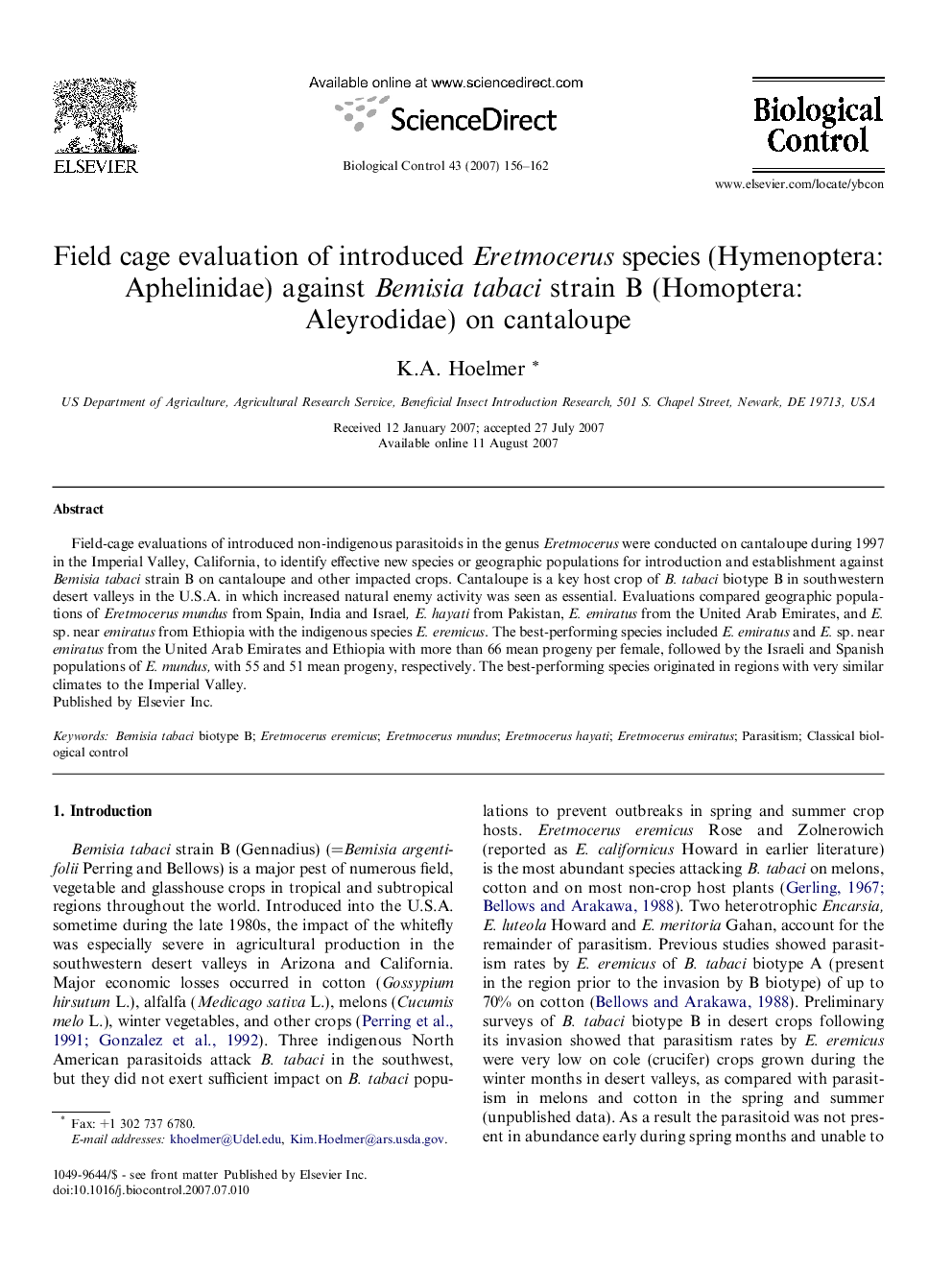| Article ID | Journal | Published Year | Pages | File Type |
|---|---|---|---|---|
| 4505133 | Biological Control | 2007 | 7 Pages |
Abstract
Field-cage evaluations of introduced non-indigenous parasitoids in the genus Eretmocerus were conducted on cantaloupe during 1997 in the Imperial Valley, California, to identify effective new species or geographic populations for introduction and establishment against Bemisia tabaci strain B on cantaloupe and other impacted crops. Cantaloupe is a key host crop of B. tabaci biotype B in southwestern desert valleys in the U.S.A. in which increased natural enemy activity was seen as essential. Evaluations compared geographic populations of Eretmocerus mundus from Spain, India and Israel, E. hayati from Pakistan, E. emiratus from the United Arab Emirates, and E. sp. near emiratus from Ethiopia with the indigenous species E. eremicus. The best-performing species included E. emiratus and E. sp. near emiratus from the United Arab Emirates and Ethiopia with more than 66 mean progeny per female, followed by the Israeli and Spanish populations of E. mundus, with 55 and 51 mean progeny, respectively. The best-performing species originated in regions with very similar climates to the Imperial Valley.
Keywords
Related Topics
Life Sciences
Agricultural and Biological Sciences
Agronomy and Crop Science
Authors
K.A. Hoelmer,
